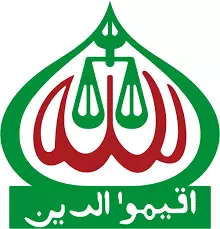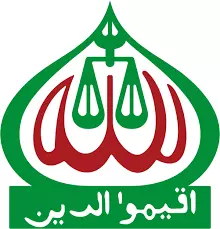
Srinagar: Jammu and Kashmir’s mainstream regional political parties have welcomed the proscribed Jamaat-e-Islami (JeI)’s reported decision to field its former members as independent candidates in select seats in the upcoming Assembly elections, terming it a victory of democracy.
“It is unfortunate that the ban imposed on the Jamaat-e-Islami many years ago continues. We had expected that it would be lifted before the announcement of the election schedule. Anyways, it is heartening that they (former Jamaat members) will join the fray as independents. Let them go to the people with their plans, their promises and their manifesto,” said former chief minister and National Conference vice president Omar Abdullah while speaking to reporters in Ganderbal near here on Sunday.
Mr. Abdullah added, “We wanted them to contest on their own symbol in JeI’s name but let them contest even as independents. As they would go to the people to seek their votes, it is up to them (people) to decide whom they would like to vote for.”
People’s Democratic Party (PDP) president Mehbooba Mufti termed the JeI’s reported decision as a “good thing” and said that her party welcomes it. She, however, demanded that the ban on the JeI should be revoked immediately.
“I want the Government of India to revoke the ban on the JeI. I do not want to name them, but there are radicalised groups representing fringe elements who are given carte blanche to spread misinformation and vitiate the atmosphere. Those who are spreading venom in this country, those who take out rallies, pelt stones on mosques and lynch Muslims. You are not banning them. Then why is there a ban on the JeI which has worked tirelessly for Kashmiris, has contributed a lot in the education sector, helped people in floods of 2014 and Covid is banned?,” she asked while talking to reporters here.
Some of the JeI’s former office-bearers had recently said that if the Centre lifts the ban on their organisation it may consider fighting the Assembly elections as was done in the past.
In February this year, the Ministry of Home Affairs (MHA) extended its ban on JeI, Jammu and Kashmir by five more years, asserting that the decision has been prompted by Prime Minister Narendra Modi’s, ‘zero tolerance policy’ towards terrorism and separatism. Home Minister Amit Shah had while justifying the move asserted that the JeI “is found continuing its activities against the security, integrity and sovereignty of the nation”. He had also said that anyone threatening the security of the nation will face “ruthless measures.”
The right-wing socio-political organisation was declared as an “unlawful association” and banned for a period of five years by the MHA on February 28, 2019 on the plea that its activities are “prejudicial to internal security and public order”.
The MHA had said that the move was made also because of the fact that the JeI is the main organisation responsible for the propagation of separatist and radical ideology in the state particularly Kashmir Valley. The decision had come days after more than 250 of its activists including the entire leadership were arrested by the police from different parts of the Valley. The party’s leadership and most other prominent members continue to be incarcerated whereas various law enforcing agencies including the J&K State Intelligence Agency (SIA) have confiscated hundreds of is properties across the Union Territory “in consonance with the government’s policy of zero tolerance towards anti-State activities” since.
The MHA had while justifying its decision to ban the JeI said that it still has the potential to disrupt the unity and integrity of the country. It had asserted that if the party’s activities are not curbed immediately, it is likely to “escalate its subversive activities including an attempt to carve out an Islamic State out of the territory of Union of India”, continue advocating the secession of Jammu and Kashmir, and propagate “anti-national and separatist” sentiments.
JeI, J&K is an independent organisation-separate from Jamaat-e-Islamic Hind and Jamaat-e-Islami Pakistan. In the past, it has openly supported the demand of plebiscite in J&K and has been known for its pro-Pakistan leaning. In 1987, it was the main driving force behind the formation of Muslim United Front (MUF) which fought State Assembly elections against the NC-Congress combine.
It is said that the elections were rigged in favour of the ruling party leading to many of those associated with the MUF to turn to the gun. One of them was Muhammad Yusuf Shah who later became known as Syed Salahuddin, the ‘supreme commander’ of Hizb-ul-Mujahideen and chief of United Jihad Council, the alliance of pro-Pakistani militant outfits.
The JeI, J&K, formed in 1942, was banned during the Emergency and later also during the heyday of militancy in J&K. It, however, distanced from militancy in 1997 and subsequently split with separatist patriarch Syed Ali Shah Geelani with likeminded Jamaat cadres forming his own group called J&K Tehrik-e-Hurriyat. The MHA had in December last year declared the Tehrik-e-Hurriyat too as an “unlawful association” and banned it for a period of five years under Unlawful Activities (Prevention) Act.
